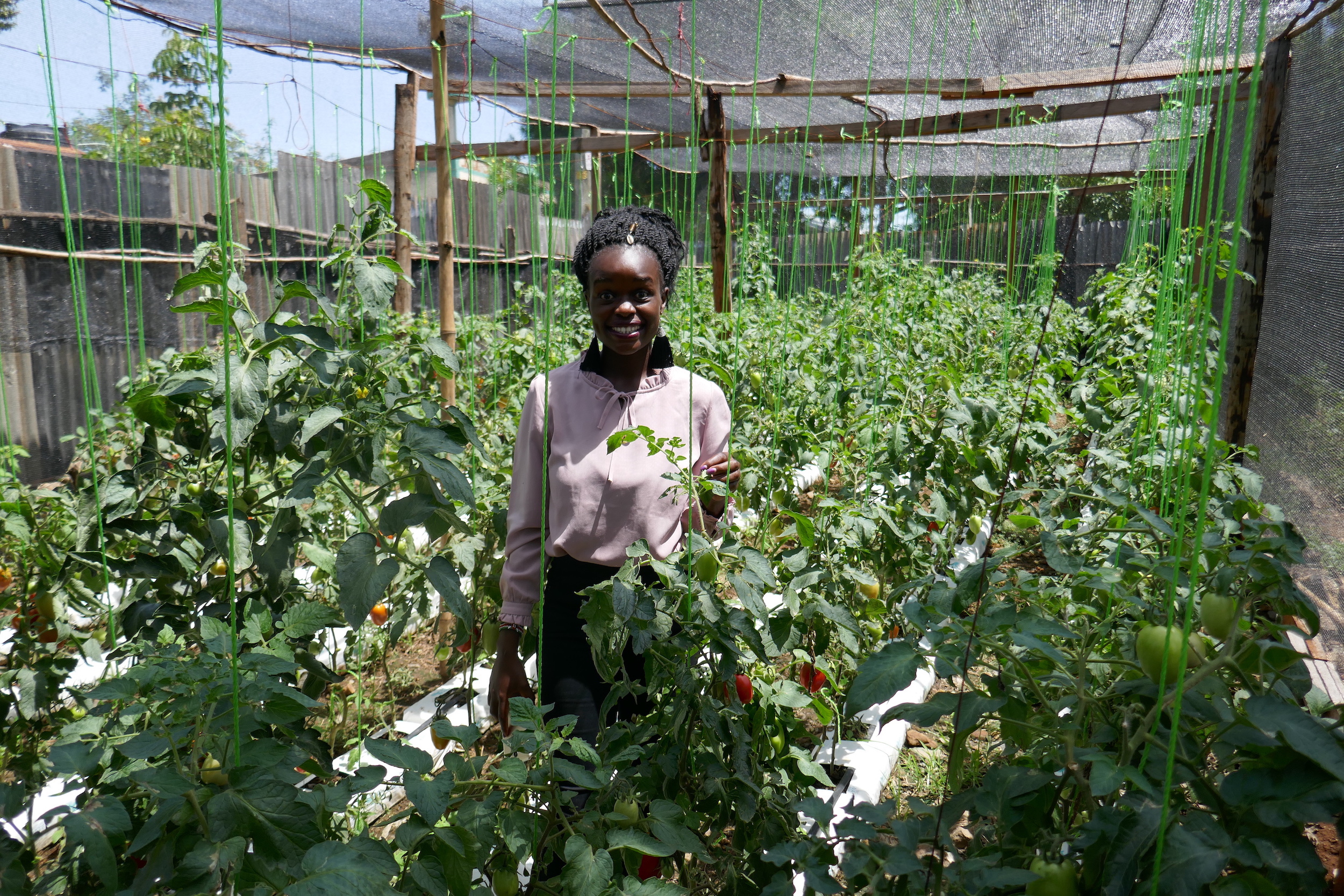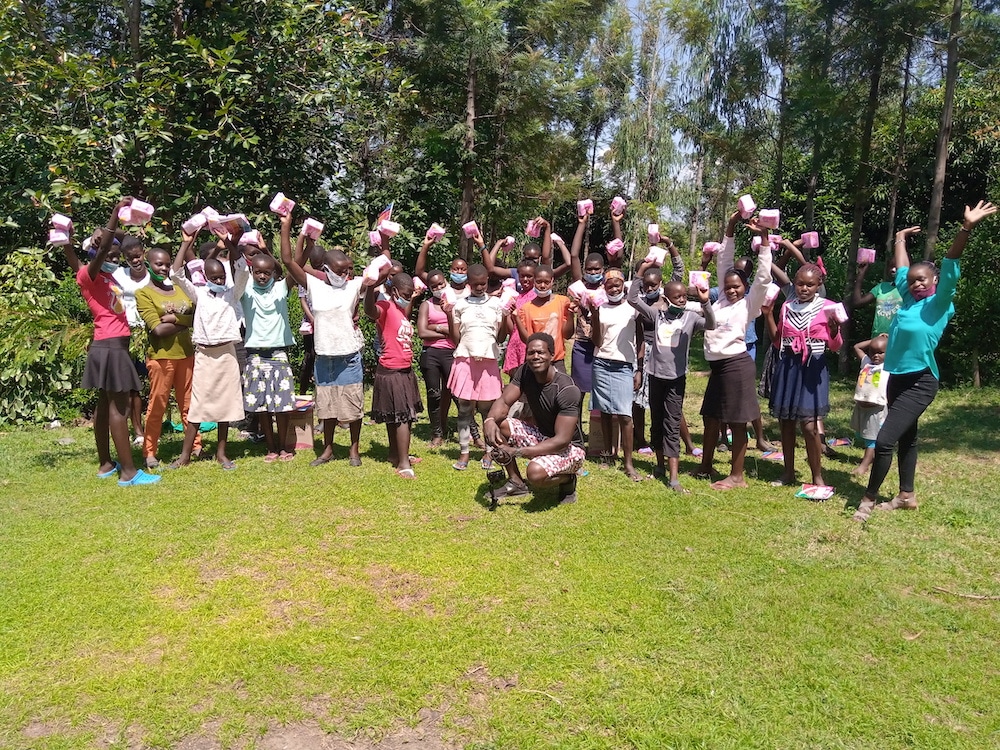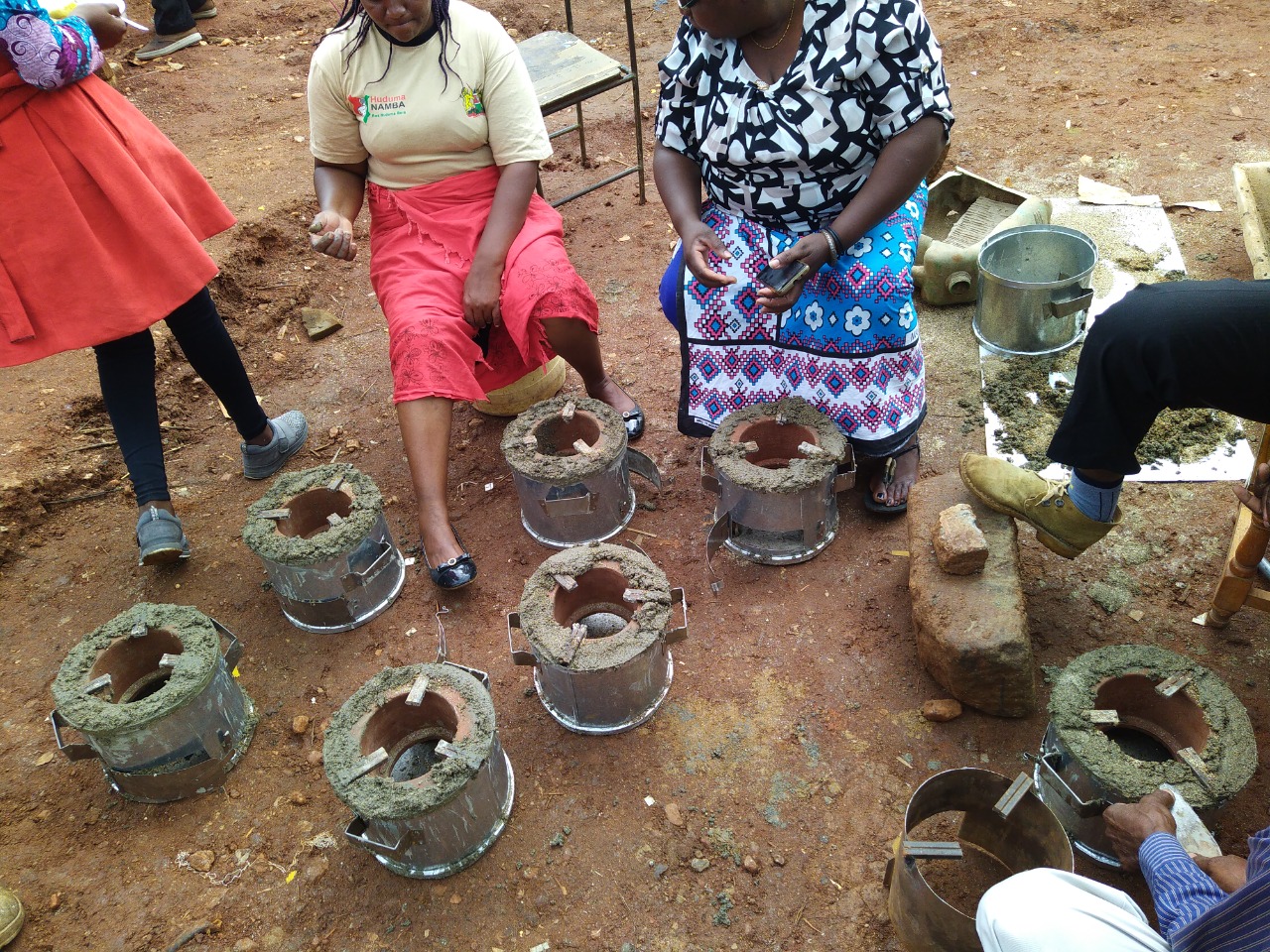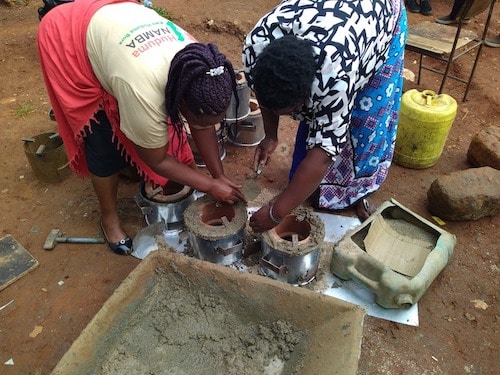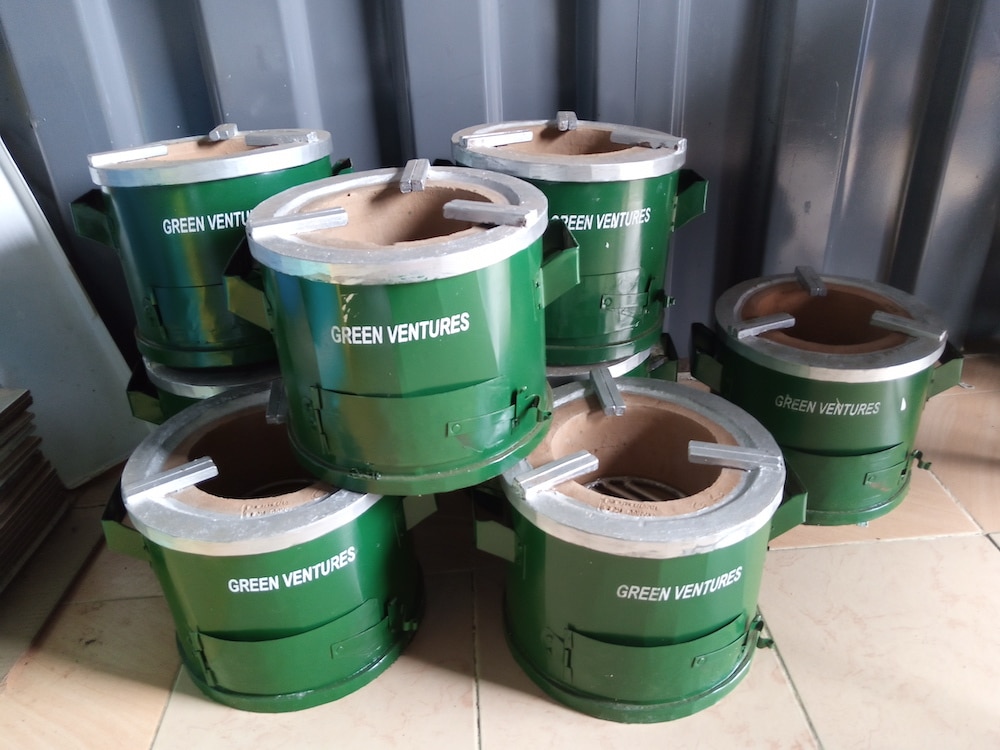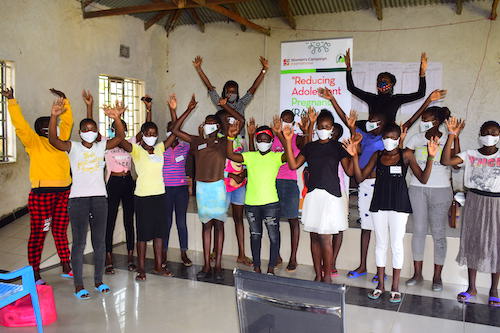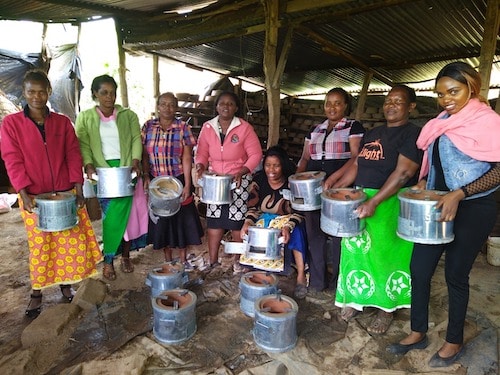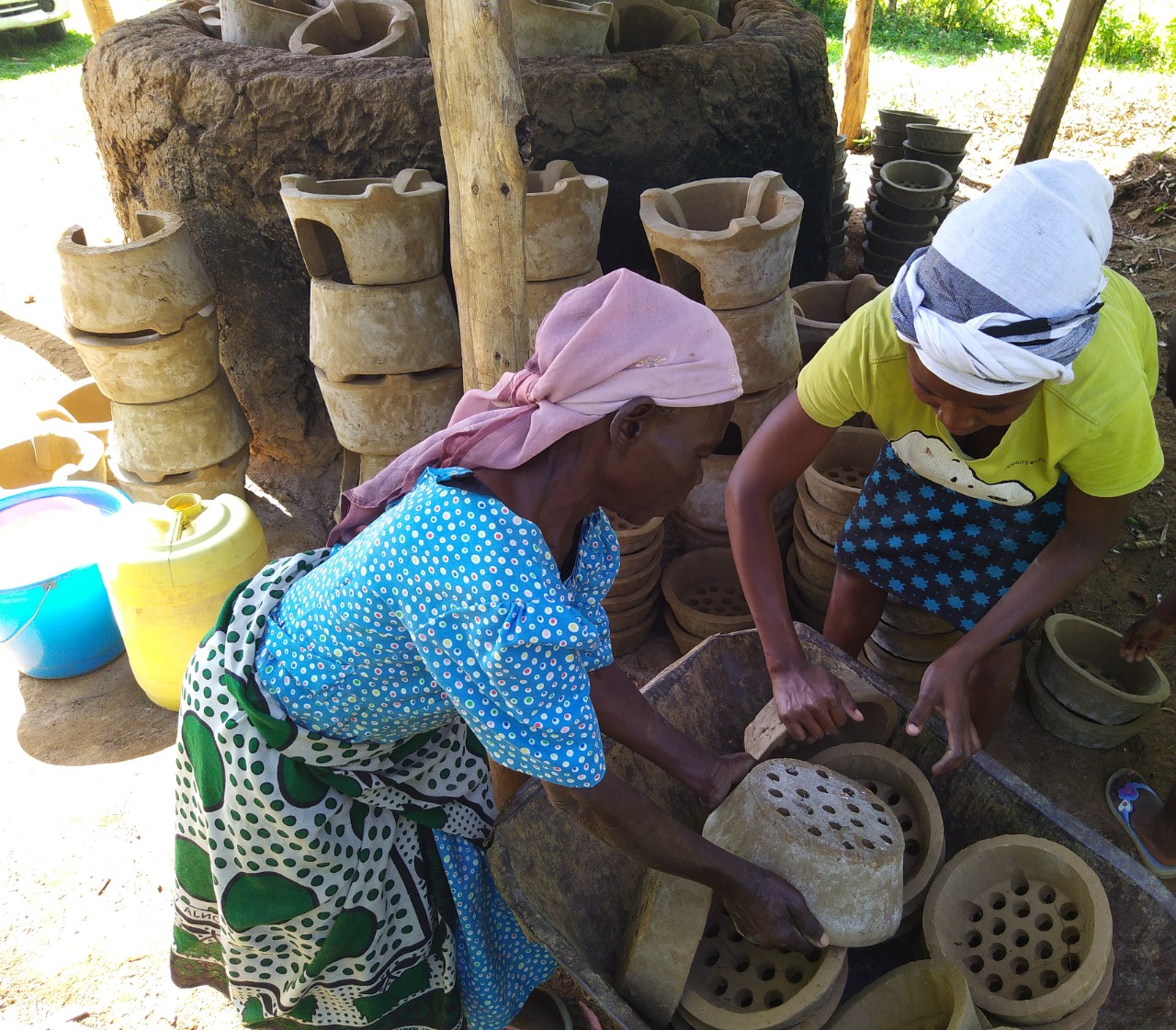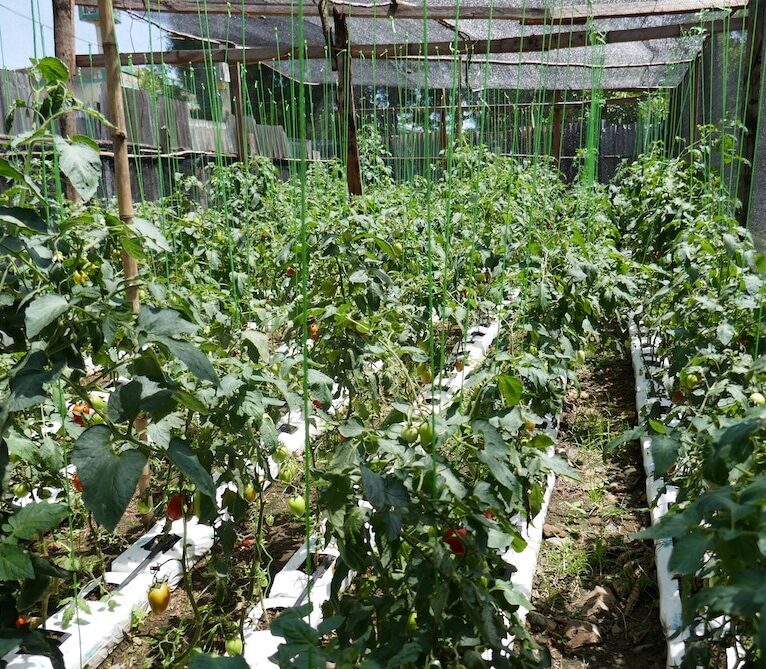Using Green Energy to fight for Women’s Health
Meet Prescilla Awino Onyango of Winam Green Ventures
Prescilla Awino Onyango is the founder of Winam Green Ventures (WGV), an organization in Kenya that works with women of underprivileged backgrounds in the Lake Victoria region. WGV educates and empowers women and girls with locally driven, sustainable and environment friendly projects, such as hydroponic farming, briquettes, improved energy saving cook stoves and girls’ mentorship. Prescilla is a participant in The Charcoal Project’s Harvest Fuel Initiative Kenya Program.
Inspiration and Getting Winam Green Ventures Started
TCP: What inspired you to start Winam Green Ventures? What are the main problems the community faces that you are helping to solve?
Prescilla: Unfortunately, culturally in our African context, women tend to be left with most of the responsibilities regarding sustaining family needs, despite the fact that many women have either low or no income. Having been raised along Lake Victoria, I have witnessed poor women trading their bodies for fish from fishermen in order to support their families. The most vulnerable have been women who solely depend on fish mongering as a livelihood. I have seen several lives lost through HIV/AIDS and starvation, countless women becoming widows, and girls becoming school drop-outs. Concurrently, teen pregnancies and child marriages amongst young girls have continued rising due to increasingly biting poverty levels, making the future quite challenging to predict. I wanted to change the status quo by showing the community that as long as we have a small amount of land, we can use it sustainably to produce green food. WGV was created to fight for the conservation of our environment, as well as the empowerment and poverty alleviation of women, creating a sustainable future in line with the vision 2030 UN Sustainable Development Goals.
TCP: How did you get started? Did you have capital from friends and family? Outside investors?
Prescila: After saving up money for a year, I was able to make the dream of sustainable innovative farming in the community come true. I started by setting a hydroponic farm for tomatoes and organic kitchen farming (using gunny bags) for vegetables, and eventually added kale and spinach. Growing tomatoes with the hydroponic system is very economical because we use shredded coconut husks connected to drip irrigation water containing organic nutrients, which uses less land, produces greater yield, requires less labor and is eco-friendly. Yielding more vegetables than expected, thus simple integrated technology started yielding a profit. Now, community members can have access to fresh vegetables, instead of traveling 5km before. After making a farming profit, other energy and mentorship projects followed.
Accomplishing the Mission
TCP: What is the distribution strategy for your cookstoves and briquettes?
Prescilla: Our distribution strategy has been focused primarily on women’s groups in the community, as women are responsible for cooking in the households. Through savings and group loans, these women’s groups have been able to purchase cookstoves and briquettes for their members.
TCP: What customer segment do you target and how are you able to reach them with your marketing and distribution efforts?
Prescilla: Our target customers are women’s groups, households, hotels, restaurants along the beach and fishermen. Our marketing strategy always includes a pitch on the value of briquettes and improved cookstoves, as well as a demonstration on how they work. Including a live demonstration has helped us penetrate the market, demonstrating that seeing is believing.
TCP: Do you find it difficult managing different and not necessarily related products like hydroponics and briquettes? How do you make this work for the organization?
Prescilla: No, it’s very easy to manage because I have different women working on each of the projects. My role is only to provide them with a work plan and technical support, and the fact that the women are very passionate about the activities they are involved in, makes it a lot easier to manage.
Making an Impact with Winam Green Ventures
TCP: In what specific ways does WGV work to empower vulnerable and marginalized women in the community? Any current projects?
Prescilla: One way we empower women is through different projects and mentorship programs, some of which involve improved cookstoves, briquettes and hydroponic farming. Since the “sex for fish” problem is linked with the high prevalence of HIV/AIDS, we have also partnered with local organizations to help reach out to affected women – especially the Beach management units in Dunga, Nyamware, Kamwala and Chuowe. Through these efforts, and specifically through the work at our farm, we have created an environment for women of all ages to come together, practice sustainable agriculture and open up about their challenges. We have now managed to educate over 150 women on the dangers and consequences of “sex for fish,” coupled with trainings on alternative livelihoods options — mostly agroforestry and community savings and loans. The group currently operates an indigenous tree nursery, from which they raise and sell seedlings to various people for income generation and shared proceeds. We have also sensitized fishermen from the beach (the perpetrators of “sex for fish,”) on respect for women’s rights, safe sex, roles in family development, sustainable fishing methods, and attitudinal changes. By working through our different perspectives and discussing challenges in a safe space, we have greatly contributed to the reduction of the “sex for fish” trade on the beach, consequently reducing the spread of HIV/AIDs and all the while promoting conservation of the beach’s ecosystem.
TCP: How many women and girls benefit from your activities in terms of education and improved livelihoods?
Prescila: We have helped 75 girls and 126 women by providing education, mentorship and income generating opportunities.
Inspiration and the Way Forward
TCP: What people and organizations have helped and inspired you on this entrepreneurial journey?
The Charcoal Project has inspired my entrepreneurial journey, specifically with the support of Sylvia Herzog, who has helped in our business development, and Dan Sweeney (MIT D-Lab) who has helped us gain a greater technical understanding of our products. Through their help, and the resources made available through the HFI program, I can say that our enterprise is at another level.
The Young African Leadership Initiative (YALI RLC) has also played a vital role in my entrepreneurial journey. In November/December 2020, I was selected to join Women in African Power forWomen in Energy in East & Central Africa.
With the eco-friendly nature of our enterprise, I was able to emerge a finalist at Mandela Washington Fellowship 2020/2021 under the Business & Entrepreneurship track.
TCP: The COVID-19 pandemic has been disastrous for many small businesses in Kenya and around the world – how have you coped to keep your business running and service your customers?
Prescilla: When the pandemic started, some of the women were not in a position to get income from WGV as sales dropped, so WGV had to make do with 1 employee out of 6, which further affected revenue. Also, climate change has caused the water level to rise along the Lake region, which affected our hydroponic system. Thanks to Sylvia Herzog of The Charcoal Project, as she helped us stand to our feet again by connecting us to a donor who provided a micro-grant to support operations.
TCP: As you take your business to the next level, what words of advice do you have for other aspiring clean energy entrepreneurs in Kenya?
Prescilla: Specifically for clean energy entrepreneurs, it is important to remember that energy is a necessity. Investing in clean energy is more than just a business, it’s an investment in the care of the environment, the health of our community and making the world a better place. It’s a win-win business and a business with many participants in the value chain. It reduces the economic burden of energy on the environment, especially when coupled with energy efficiency upgrades in our homes and business.
Generally speaking, every person at a different level and location has personal power to change the world and make it a better place. Innovation is guided by young people, adopted to the local circumstances and sustainable for the economy and environment. Problems and challenges provide an opportunity for solutions. Despite where you are and what you have, start now, start where you are, start with fear, start with pain, start with doubt, start with hands shaking, start with voice trembling but START. Start and don’t stop. Start where you are with what you have.
About the Author
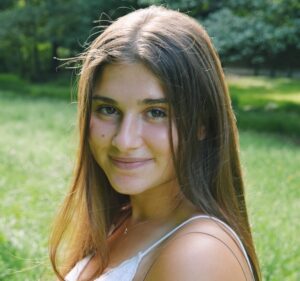
Abby Rose Notarnicola is a sophomore at the George Washington University, studying Psychology, Sociology and Exercise Science. She has been interning with the Charcoal Project for 7 months, providing technological support to Sylvia Herzog and members of the HFI Kenya Program. Specifically, she develops webinars on various social media platforms and marketing tools, creates website pages for the HFI Kenya participants, and assists the participants in social media communications and website projects as needed.![]()

